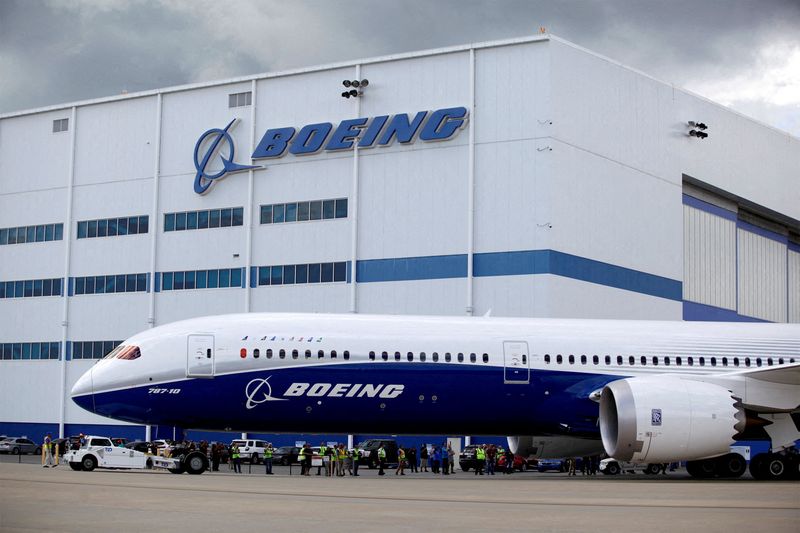Proactive Investors - Boeing Co (NYSE:BA, ETR:BCO) told investors last week that the Federal Aviation Administration’s (FFA's) freeze on production of its 737 jets will put significant pressure on its 2025/2026 production and free cash flow targets, but analysts at the Bank of America (NYSE:BAC) (BoA) believe the forced slowdown will ultimately benefit the company in the long-term.
After a mid-air door blowout during an Alaska Airlines flight on January 5 grounded Boeing’s 737 Max 9s, the FAA has cleared these planes to resume flying but told the airplane manufacturer it could not expand its production of its 737 Max planes as it continues an investigation into its quality control measures.
“The slowdown [in 737 production] will enable Boeing, its suppliers, and regulators to focus on quality assurance and best-in-class production practices,” the BoA analysts wrote in a note to clients.
The analysts believe Boeing’s position in a duopoly for commercial aircraft which are in short supply will allow it to maintain its market share in the mid-term.
“The robust demand environment coupled with original equipment manufacturers (OEMs) struggling to meet customer orders should enable Boeing to continue benefiting from its albeit shrinking share of the global duopoly for commercial aircraft,” they wrote.
Based on these factors, the BoA analysts have revised their earnings per share (EPS) forecasts for Boeing.
They have raised their 2024 EPS estimate to $0.70 from $0.25 and 2025 EPS estimate to $6.55 from $6.35. However, they lowered their 2026 EPS estimate from $9.15 to $8.90.
They reiterated their ‘Neutral’ rating on the stock and $225 price target.
Shares of Boeing traded down 2.6% at $204 in early trade on Monday and have shed 19.8% year to date.
Sending Boeing’s shares lower on Monday was its announcement over the weekend that it will be required to carry out additional work on about 50 undelivered 737 Max airplanes after supplier Spirit AeroSystems found two incorrectly drilled holes on some fuselages.
In a letter shared on Monday, Boeing’s commercial airplanes division CEO Stan Deal wrote that the potential issue was not an immediate safety concern.
